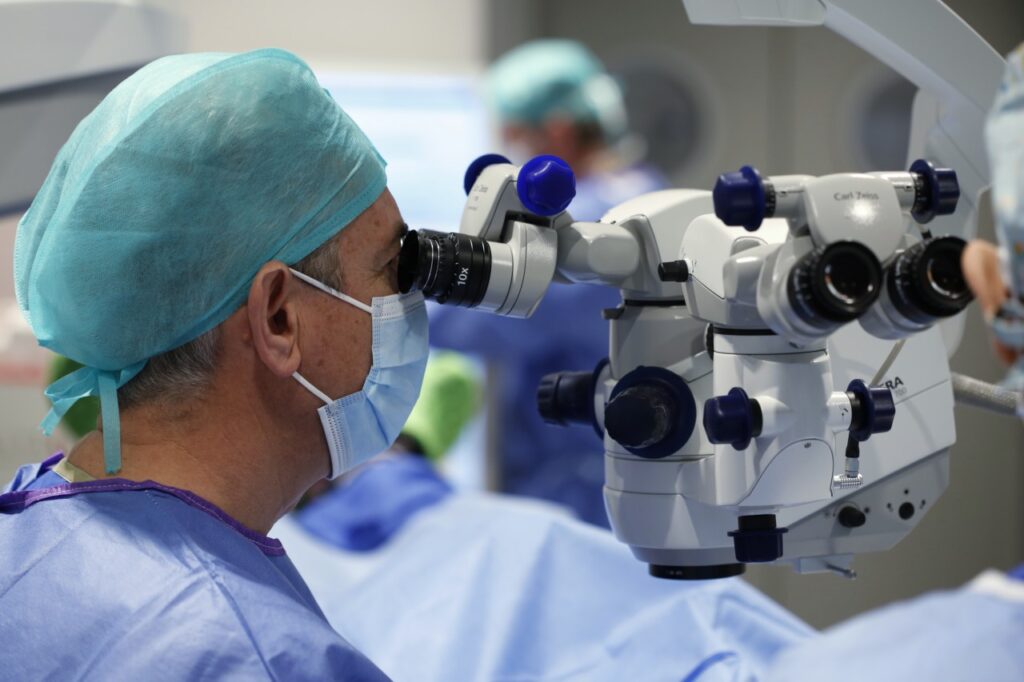Presbyopia in three stages: extending your arms, depending on glasses and seeing well at any distance with premium surgery
It is well known that age is associated with the appearance of new pathologies, and the eye is no exception. Experiencing difficulties in reading a restaurant menu or having to move your mobile phone away to see its contents are some of the symptoms associated with “dysfunctional lens syndrome”, the main cause of presbyopia or eyestrain.
Dr. Juan Pedro Torralba, a medical director at Miranza Oculsur, explains the development of this disorder that affects our visual quality: “We are increasingly taking into account the dysfunctional lens syndrome, so called because the problems of eyestrain, i.e. presbyopia, appear due to the fact that the lens loses elasticity, hence the ability to focus.”
Dysfunctional lens syndrome appears with symptoms usually associated with increasing age. Dr. Javier Mendicute, a medical director at Miranza Begitek, explains the evolution of this condition’s symptoms: “Patients with presbyopia start to notice that they have difficulties with near vision; first, when reading the newspaper or books, whereas, later, this difficulty extends to intermediate distances, such as computer use.”

For any distance
As to the treatment of presbyopia, Dr Mendicute adds that “in the early stages, it is most advisable to use glasses, because you will intermittently depend on them, whereas when presbyopia is already consolidated, approximately after the age of 50, there are surgical options offering different possibilities.”
On the other hand, Dr. Santiago Delgado, a specialist at Miranza Ophthalteam, explains that “as soon as the lens ceases to be functional, even if it does not involve any cataract, it is a lens that no longer focuses up close and is therefore dysfunctional. For the treatment of presbyopia, the ophthalmologist suggests a surgical solution that allows patients to see well at any distance: “We can replace the lens with a multifocal intraocular lens so as to get rid of the glasses we use as a treatment for presbyopia.“
This treatment solution can make it possible to do without glasses and improve visual quality as well as quality of life exponentially in a customised way thanks to premium surgery. “There are different types of lenses, which are adjusted according to the patient’s personality, the type of job they have, the characteristics of their eyes, etc.,” explains Dr. Félix González, deputy medical director at Miranza Madrid. The specialist points out that “a specific type of lens can be chosen for each patient, so that many people who felt previously limited and even needed glasses to eat, because otherwise they could not see what they were eating, can now do without glasses.